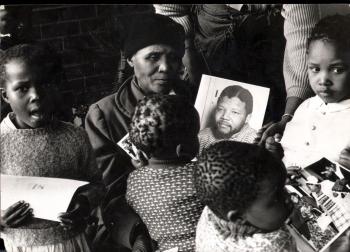Posted on June 21, 2010

Our bloggers this month are Lucy Campbell, founder of Transcending History Tours, Heather MacAllister of Ancestry24, both based in Cape Town, and Siyabonga Mkhize who is based near Durban. In its own way each of their blogs speaks to the questions from December 2009 that I raised again in the last blog: in searching for family histories where do we begin? How do we go back beyond three generations?
Personal journeys of discovery have played a profound role in shaping the respective work of Mkhize and Campbell. Mkhize tells us of the turn he made from conducting research for professional purposes to finding out who his own people, the Mkhize, are. The question this raises is: how do you proceed when the record is silent or, at the very least, sketchy on your ancestors as is the case with many Africans whose forebears had previously passed their stories down from mouth to ear? Mkhize takes us through how he has used different methods: oral history has been his primary method, which he has supplemented with poring through published and archival sources. The final outcome of his endeavours has been a book. His insights offer useful suggestions for those who are in a similar position in regard to what sources are available for your project.
In the same vein as the work Mkhize has done on his own, there are many people who gather as groups in KwaZulu-Natal, Gauteng, Mpumalanga and Limpopo and whose members consider themselves related going back in history. Such people are collecting the histories of their lineages, clans or historical polities. In KwaZulu-Natal these include the Khumalo and related groups such as the Mabaso, the Ndwandwe and their relations the Nxumalo and Madlobha, the Dlamini, and many others. People of these descent groups have from time to time held large gatherings where they talk about matters relating to their present well-being as informed by their pasts: Who were their ancestors? How did their polities (ubukhosi) get incorporated into other kingdoms or states? Are the ancestors at peace where they are (given that some died in wars)? These and many other questions are being asked and some answers proffered. Some people of the same descent groups are using social networking sites like Facebook to network and discuss their pasts. We hope to get someone who is part of these virtual conversations to tell us what they talk about.
Campbell has found that making sense of who she is has meant finding out about her forebears. A similar problem that faces researchers in slave histories, particularly those tracing people to whom they have personal ties, is that if such people did not come into prominence there may only be snatches of information available. How do you piece their stories together? What clues do you follow to lead you to more information? What records are there? Where are they? Campbell offers a useful glimpse into the kinds of information available in archival institutions such as the Western Cape Archives and museums. She suggests ways in which this information can be made more accessible to the public. More importantly, she tells us why she began, and why it is important to begin finding out who we are so that we can start to heal the wounds of the past that sometimes we do not even know we bear. Her journey leads to a very provocative proposition regarding how to heal together as a nation.
Finally, MacAllister tells us about the intriguing work she and her team of volunteers have been doing. They have been making available a free resource online – tagged photographs of headstones from graveyards. This information can help us find where those of our predecessors who had headstones erected for them lie. This work raises the question why ancestors matter, not just to individuals, but for entire cultures. Do they matter for different reasons to different cultures? We are rolling on to this topic in the next set of blogs.
But for now we invite you to comment on the blogs: What have been your experiences? What problems have you encountered? Any thoughts, advice or questions provoked by these blogs are welcome. If you would like to share your thoughts by writing a blog for Ancestral Stories, please contact us: ancestralstories@archivalplatform.org.
Mbongiseni Buthelezi teaches in the English Department, University of Cape Town and is the coordinator of the Archival Platform's One Land: Countless Histories - Ancestral Stories initiative.